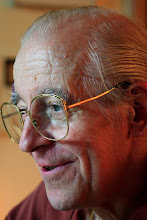Today Korea has only one casino open to locals, the Kangwon Land, but numerous suicides, bankruptcies, crimes, and family breakdowns took place following the opening. Kangwon Land was an exception to the Korean law in a move to help miners of the area unable to make an income due to dead mines.

Changgi players (c.1900)
Out of any doubt, Koreans have an unrivalled propensity for competition and gambling. Last year, lottery tickets sale show a sharp increase at the point to alert government overseers. The National Gaming Control Commission (NGCC) under the Prime Minister’s Office is reported to be considering issuing a ‘stoppage order’ for the sales as the total lottery sales last year reached 3.1 trillion won (US$ 2.7 billion), passing the authorities-set limit of 2.8 trillion won for the first time since the current gambling oversight system started in 2009. However, a lottery suspension—even if only temporary—will invite strong complaints from lottery fans, and it will be too severe a blow to the nation’s about 18 000 Lotto ticket sellers and numerous others related to the lottery business. So it is more likely that the gaming commission would raise the ceiling to absorb the sales increase.
One of the reasons for such increase is to be found in the starting of pension-type Lotto and the decision to carry over unclaimed prize money. Yet, the sales of other forms of betting have also grown sharply. NGCC statistics reveal that the six major gambling businesses—horseracing, game cycling, motorboat racing, casinos, Lotto and sports lottery—had a combined total revenue of 17 trillion won (US$ 14.9 billion) last year or 1.5 percent of national income. This is compared to 6.2 trillion won in 2000. These figures only cover the legal, open kinds of gambling, which are allowed under the excuse of providing entertainment for the people and generating funds for some charitable programs. Correct calculation is simply impossible if is to add the huge scale of illegal gambling in this country, in ‘officetel’ backrooms, ‘Quonset Huts’ (American trademark for a prefabricated shelter of semi-cylindrical form) in the countryside and the numerous Internet gambling sites. Authorities checked 7 971 online gambling sites last year.
To all this should be added the many businessmen and entertainers known to be squandering dollars in overseas casinos. One university research team has come up with the incredible figure of 80 trillion won (US$ 70 billion) as the ‘socio-economic cost’ of gambling in Korea. Loss of productive manpower accounts for two-thirds of the social cost. The rest is the damage to domestic and industrial finances and extra expenditures for the medical treatment gambling addicts and their criminal punishment. For example, 9 out of 10 visitors to Kangwon Land reportedly show signs of addiction and the number of gamblers in casinos, horseracing, bicycling and similar reached last year 40 million in a country with a population of 48 million. About 6.1 percent of Korean gamblers purportedly need counselling or treatment. The rate is much higher than 1.4 percent in New Zealand, 2.1 percent in Germany and 1 percent in the US state of Arizona. Why Koreans are rushing to buy lottery tickets? The answer is simple: They want to become rich overnight, even though they know that it is almost impossible to hit the jackpot. It is sad that they are increasingly turning to a get-rich-quick mentality. It is often said that people buy more lottery tickets in times of economic hardship, but it is not good to see the tickets sell like hotcakes. That is why the commission has put a cap on the lottery sales, although the limit is legally non-binding. It would be better for the ministry to meet the ceiling in a move to prevent people from indulging in vanities. This lottery fever reflects the grim reality that people stand little chance of social mobility as the income disparity has continued to widen. The Kwachon Horserace Park is crowded with jobless people and so are the bicycling and motorboat gaming places in Seoul suburbs, where they seek jackpots as a way out of their hopeless lives. Many people may have no other option than buying Lotto tickets to leave. However, betting on the lottery is a waste of money. The probability of winning is far less than one in a million. Korea ranks the world’s sixth casino market. It is bigger than Germany and the United Kingdom. Several OECD countries ban casinos. Ten out of the 16 casinos exclusive to foreigners are reportedly running at a loss. Opening them to locals is a scheme to fatten their pockets at the sacrifice of Koreans.
Society as a whole and government authorities need to make a fundamental review of their gaming policies instead of continuously raising the lottery sales ceiling, before the nation earns a dishonourable reputation for gambling. Plants and factories, not casinos, will make Korea stronger!
Giorgio Olivotto
Seoul, Korea
January 15, 2012

Nessun commento:
Posta un commento